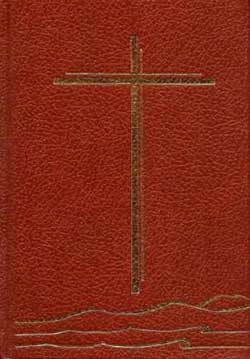 A motion from Christchurch will be moved at the July meeting of General Synod Te Hinota Whanui (GSTHW) of the Anglican Church in Aotearoa, New Zealand and Polynesia. The motion to GSTHW will bring forward our diocesan concern. Christchurch passed the following unanimously at our September synod 2011:
A motion from Christchurch will be moved at the July meeting of General Synod Te Hinota Whanui (GSTHW) of the Anglican Church in Aotearoa, New Zealand and Polynesia. The motion to GSTHW will bring forward our diocesan concern. Christchurch passed the following unanimously at our September synod 2011:
“That this Synod… asks the Standing Committee of the General Synod/ te Hinota Whanui to urgently set in place a review of the labyrinthine liturgical rules of our province and produce a straightforward report which makes clear
1) what is required,
2) what is allowed, and
3) what is forbidden,
and that this review become the foundation for a renewal of the way we categorise our liturgical resources to a transparent, simple system.”
The motion being moved at GSTHW is:
Moved Ven Canon Andrew Starky Seconded Rev Brian Dawson
That this Synod,
Acknowledges various decisions it has made in the years since the original publication of A New Zealand Prayer Book He Karakia Mihinare o Aotearoa
(1989) about the approved liturgies and related materials and guidelines of this church have been made in good faith as responses to changing contexts for the worship and mission of this church,Acknowledges that as an unintended consequence of these decisions, some confusion exists in our church as to what is required or allowed in worship in respect of our shared understanding of authorised forms of worship, including confusion as to where within our own constitution and canons we may assuredly and readily locate all relevant rules and guidelines; and
therefore requests
General Synod Standing Committee to set up a review of the liturgical rules of our church with a view to bringing recommendations to the next session of General Synod in order to improve clarity in our understanding of those rules and where necessary simplification of the same.
This motion before GSTHW is an eminently irenic motion. It reflects the concerns of the Christchurch diocese, and many others, that the liturgical rules in our church have become difficult to interpret. Even our bishops are struggling to interpret them.
The motion is clear that the confusion is not due to any ideologically-driven group or direction. It has happened as unintended consequences of decisions that individually appeared appropriate at the time to further Christ’s mission.
As strongly as possible, I urge members of General Synod Te Hinota Whanui to vote yes to this motion and set in process a review of the liturgical rules of our church.
I think it unwise, for example, for GSTHW to proceed with “authorising” Ashes to Fire until it is clearer what such “authorisation” means. Currently “Ashes to Fire” is a useful resource. You can draw material from it for Lent and Easter Seasons. Once it is “authorised” (which is the intention of Bill 4 at this meeting of GSTHW) it will be the only Lent and Easter Season rites authorised in our church. If passed, will people then lose this freedom and have no option? [We are required, promise and sign, to only use authorised services. If we use anything other than an authorised service we are opening ourselves to discipline procedures.] If they have a service with ash, for example, on Ash Wednesday will they have to use the one in “Ashes to Fire”?! Currently, of course, you have a choice! Until Standing Committee has concluded its review, Bill 4 and any other liturgical decisions should lie on the table so that the liturgical confusion is not increased.
My concern was expressed unanimously by our Christchurch synod:
That this Synod… encourages our diocesan representatives on General Synod/ te Hinota Whanui to work towards halting the authorising of any further forms of service (including Ashes to Fire) until such clarity is present in our liturgical rules.
This year’s report to to GSTHW by the Common Life Liturgical Commission (the liturgical commission of our province) indicates that confusion about what is allowed has been an issue since at least 1992. This should encourage GSTHW members to push “pause” on any new liturgical decisions and authorisation until this matter is appropriately resolved. The time has come to sort this once and for all.
The motion to GSTHW is moved by Andrew Starky from the Diocese of Christchurch, and seconded by Brian Dawson who is a member of the Tikanga Pakeha Liturgical Working Group (the Tikanga Pakeha liturgical committee) and a member of Standing Committee of GSTHW. May God bless the speeches, discussion, and decision.



Yet again, Bosco, please send relevant material on this to me at my email address. Thanks again!
Naku nei, Turi